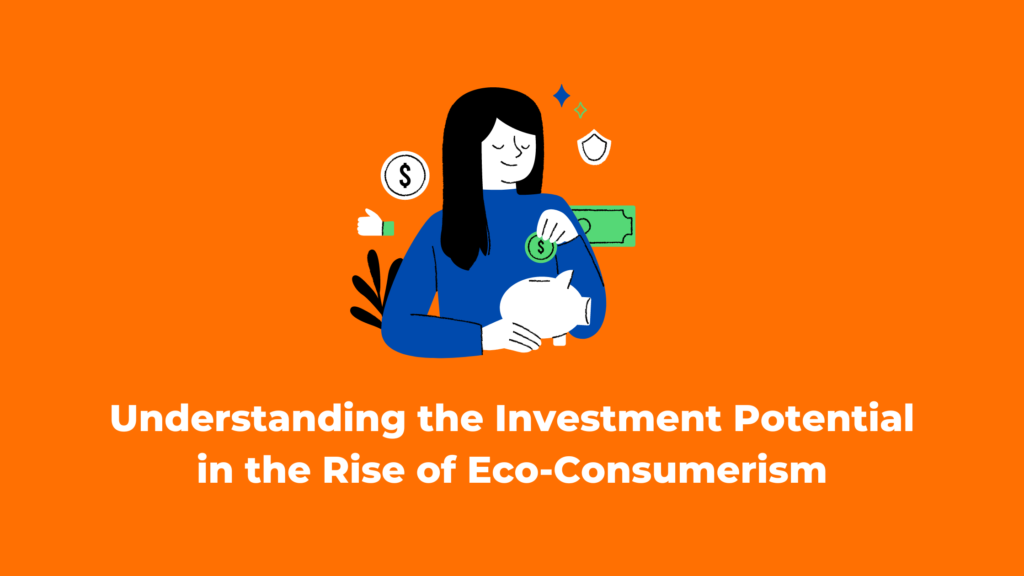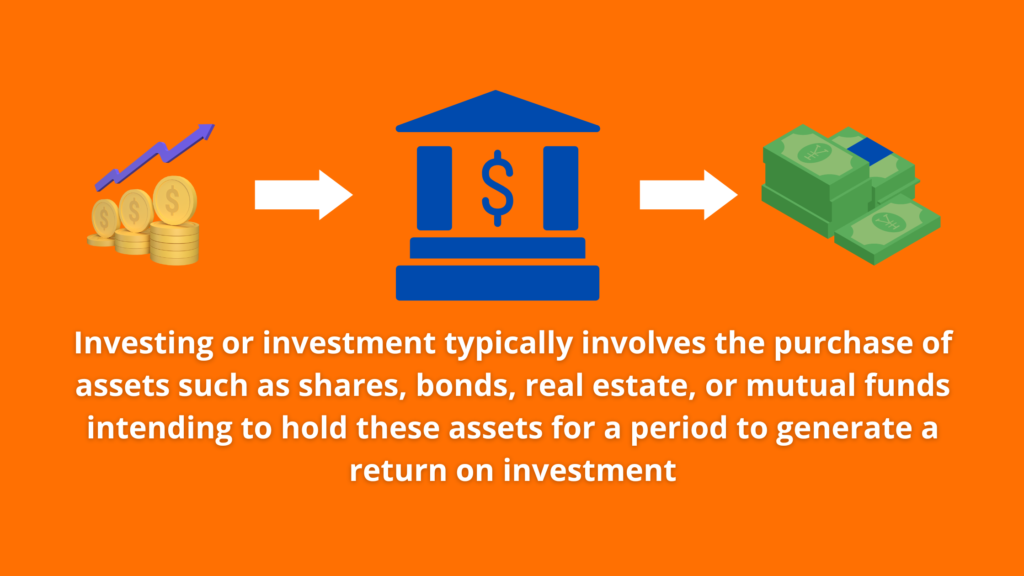Confronting global challenges such as climate degradation and the exhaustion of natural resources, the contemporary consumer has grown exceedingly eco-aware, profoundly considering the ecological implications of their spending decisions. This mounting eco-awareness is carving out new consumer tendencies, consequently reshaping the commercial ecosystem. As delineated by McKinsey’s Consumer Sentiment Survey, customers are avidly pursuing eco-friendly goods and increasingly committing to eco-responsible decisions.
Prominent organizations like Unilever are acknowledging and adapting to this transformative wave. Unilever’s CEO, Alan Jope, has emphasized, “Incorporating eco-conscious principles into product development isn’t an afterthought; it has to be an intrinsic part of the process from the outset. In this article, we will explore the potential for investment in the face of this burgeoning phenomenon.
The Shift in Consumer Mindset
At the heart of eco-consumerism is a significant shift in consumer attitudes and preferences. Today’s consumers are not just attracted by quality and price; they also place value on the environmental impact of their purchases. A recent survey by Nielsen found that 73% of global consumers would definitely or probably change their consumption habits to reduce their impact on the environment. This shift presents an exciting opportunity for investors to support businesses that have sustainability at their core.
Investing in the Rapid Turnover of White Goods
White goods, such as refrigerators, washing machines, and other household appliances, are being replaced more frequently than ever before, leading to an unprecedented waste challenge. In response, numerous companies have emerged to offer recycling services, extending the lifecycle of these products and reducing their environmental footprint. These firms profit from the sale of reclaimed materials and, in some cases, the refurbishment and resale of the appliances themselves. With the continuous technological advancements and growing consumer preference for upgrading to the latest models, white goods recycling companies presents a promising investment opportunity for those looking to align their portfolio with the trend of eco-consumerism.
Capitalizing on the Green Consumer Market
Today’s green consumer market is not just about purchasing organic food or driving an electric car. It has expanded to include everything from fashion to electronics, driven by consumers who are willing to pay a premium for sustainable products. This shift has created a burgeoning market for companies offering eco-friendly alternatives to traditional goods and services. For investors, this presents a unique opportunity to invest in innovative businesses catering to this growing market. However, to truly capitalize on this trend, investors must understand the evolving needs of the eco-conscious consumer and support businesses that offer genuine, not just superficial, green alternatives.
The Role of Social Media in Driving Eco-Consumerism
Social media has played a crucial role in promoting eco-consumerism, providing a platform for influencers, brands, and consumers to share and promote sustainable products and practices. Businesses leverage social media to engage with consumers, raise awareness about their sustainability efforts, and market their eco-friendly products. Meanwhile, eco-conscious influencers are shaping consumer behaviors and trends. Investors should not underestimate the impact of this digital revolution in shaping the future of eco-consumerism and, in turn, the potential investment opportunities it presents.
Emerging Markets and the Eco-Consumerism Opportunity
While eco-consumerism is often associated with developed markets, emerging markets present significant untapped potential. With growing middle classes, increasing internet penetration, and heightened awareness of environmental issues, countries such as India, China, and Brazil are ripe for the rise of eco-consumerism. Moreover, many nations are at the forefront of sustainability and green technology innovations, presenting potential investment opportunities. For forward-thinking investors, understanding the unique dynamics of these markets could unlock significant returns while contributing to global sustainability efforts.
Sustainability as a Competitive Advantage
Companies that have been early adopters in integrating sustainability into their business models are already reaping the benefits. Research by Harvard Business School found that sustainable businesses outperformed their counterparts over the long term. Notably, this extends beyond consumer-facing companies to include those in the supply chain. Firms that can showcase a low carbon footprint or a commitment to sustainable sourcing are becoming increasingly attractive to businesses looking to bolster their sustainability credentials. As such, investment in these companies can provide competitive returns while also contributing to environmental conservation.
The Power of Green Technology
Another sector that stands to benefit significantly from the rise of eco-consumerism is green technology. Innovations in renewable energy, electric vehicles, waste reduction, and water conservation are all gaining traction as they increasingly meet consumer and business demand for environmentally friendly solutions. Furthermore, governments around the world are supporting green technology through incentives and subsidies, making it an even more attractive investment proposition. For investors, the green tech sector offers both the potential for robust returns and the opportunity to support transformative technologies that will play a crucial role in mitigating environmental challenges.
The Growth of Impact Investing
The rise of eco-consumerism has also catalyzed the growth of impact investing, where investors actively seek to generate both financial return and positive social or environmental impact. According to the Global Impact Investing Network (GIIN), impact investing assets doubled from $502 billion in 2019 to $1 trillion in 2021 and continue to grow. This trend reflects the increasing alignment of investment strategies with the values embodied in eco-consumerism. Companies with robust Environmental, Social, and Governance (ESG) practices are attracting significant investment, highlighting the profit potential and societal benefits of this investment strategy.
Overcoming the Challenges
Despite the enormous potential, investing in the rise of eco-consumerism is not without challenges. Greenwashing, where companies give a false impression of their environmental credentials, is a common problem. Investors need to conduct thorough due diligence to ensure the companies they invest in are genuinely sustainable.
Moreover, regulations around sustainability and eco-friendly practices vary significantly across different countries and regions, presenting potential legal and operational challenges for companies and investors alike. Navigating these hurdles requires a deep understanding of the regulatory landscape, as well as a commitment to continuous monitoring and compliance.
Conclusion
The rise of eco-consumerism presents a unique and potent investment opportunity. The shift in consumer preferences towards sustainability, the competitive advantage of sustainable businesses, the burgeoning green technology sector, and the growth of impact investing all point towards a robust potential for returns. As with any investment, there are challenges to overcome, notably the risk of greenwashing and the complexity of global sustainability regulations.

Pardeep is the founder and editor of Small Investment Ideas. He believes that everyone can change their life with the help of small investments and achieve financial freedom.


